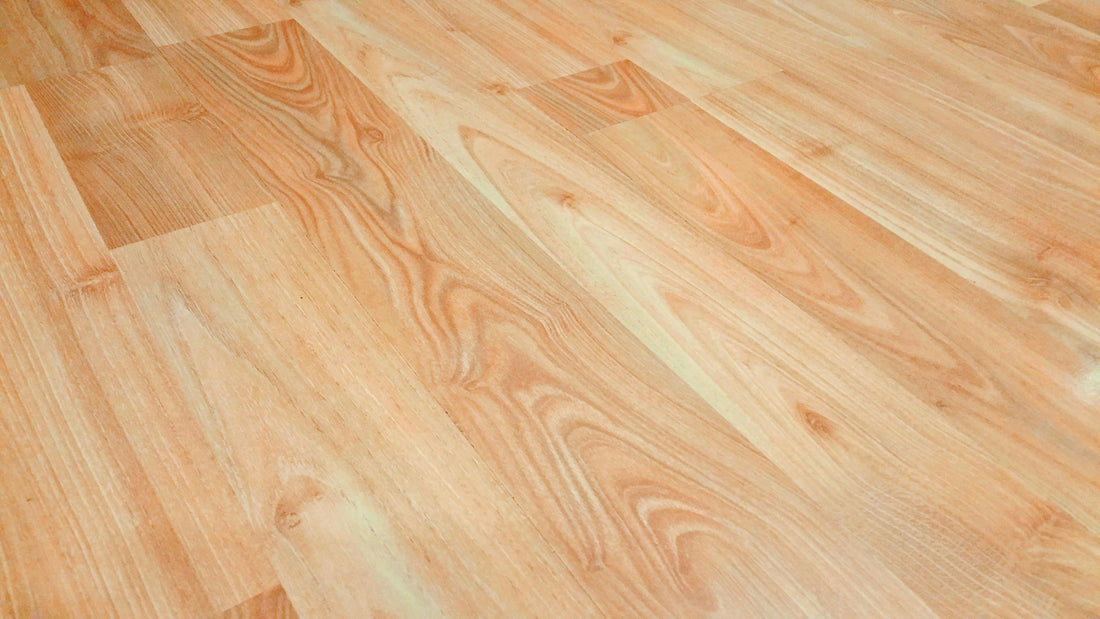
Vinyl vs Laminate vs Hardwood Flooring
When choosing flooring for your home, it's essential to understand the differences between vinyl, laminate, and hardwood to make an informed decision. Here's a comparison of these three popular flooring options:
Materials and Composition
-
Vinyl Flooring: Made from synthetic materials, primarily polyvinyl chloride (PVC), vinyl flooring is 100% synthetic. It often includes a wear layer, a design layer, and a backing layer.
-
Laminate Flooring: Composed of a high-density fiberboard (HDF) core with a photographic layer beneath a protective wear layer, laminate flooring is also synthetic. The photographic layer can mimic various materials, including wood and stone.
-
Hardwood Flooring: Crafted from solid wood, hardwood flooring is a natural material. It offers a timeless aesthetic and can be sanded and refinished multiple times to restore its appearance.
Appearance and Style
-
Vinyl Flooring: Available in various styles, including planks and tiles, vinyl can mimic the look of natural materials like wood and stone. Luxury vinyl planks (LVP) and tiles (LVT) offer realistic designs with enhanced textures.
-
Laminate Flooring: Laminate flooring can closely resemble hardwood, stone, ceramics, and other materials, often more realistically than vinyl.
-
Hardwood Flooring: Known for its natural beauty, hardwood offers a warm and classic look. It comes in various species, colors, and finishes, allowing for customization to suit different interior designs.
Durability and Maintenance
-
Vinyl Flooring: Highly durable and water-resistant, vinyl is suitable for areas prone to moisture, such as kitchens and bathrooms. It's easy to clean and maintain, requiring only regular sweeping and occasional mopping.
-
Laminate Flooring: Laminate is durable and resistant to scratches and fading. However, it's less water-resistant than vinyl and can be susceptible to moisture damage if spills are not promptly cleaned. Maintenance involves regular cleaning and avoiding excessive water.
-
Hardwood Flooring: Hardwood is durable and can last for decades with proper care. It requires regular maintenance, including cleaning and periodic refinishing to maintain its appearance. It's susceptible to moisture and can be damaged by spills if not addressed promptly.
Cost
-
Vinyl Flooring: Generally more affordable, with prices ranging from $1 to $5 per square foot, depending on quality and style.
-
Laminate Flooring: Also budget-friendly, typically costing between $1 and $4 per square foot.
-
Hardwood Flooring: More expensive, with costs ranging from $5 to $10 per square foot or more, depending on the wood species and quality.
Installation
-
Vinyl Flooring: Many vinyl flooring options feature click-lock installation systems, making them suitable for DIY projects. Some types may require professional installation, especially if glue-down methods are used.
-
Laminate Flooring: Laminate flooring often features a click-lock installation system, allowing for easy DIY installation.
-
Hardwood Flooring: Installation can be more complex, often requiring professional installation due to the need for precise fitting and acclimation to the environment.
Resale Value
-
Vinyl Flooring: While vinyl flooring has improved in quality and appearance, it generally offers a lower resale value compared to laminate and hardwood.
-
Laminate Flooring: High-quality laminate flooring can offer a higher resale value than vinyl but typically ranks below solid hardwood and engineered wood.
-
Hardwood Flooring: Hardwood flooring is often considered a premium option and can enhance a home's resale value due to its durability and timeless appeal.
Conclusion
Choosing between vinyl, laminate, and hardwood flooring depends on your priorities, including budget, aesthetic preferences, durability needs, and maintenance willingness. Vinyl and laminate offer cost-effective, low-maintenance options suitable for various areas in the home, while hardwood provides a classic, durable choice that can increase property value. Assess your specific requirements and consult with flooring professionals to make the best decision for your space.
